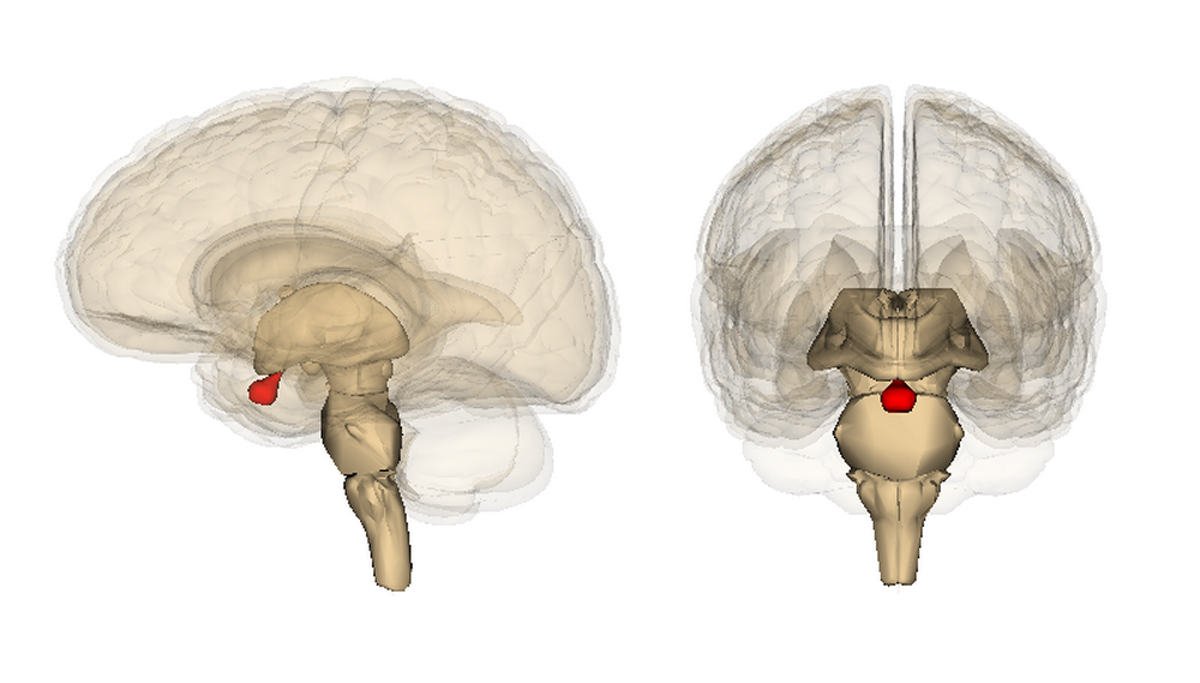At the age of 83, widower Carlo decided it was time to get back on the dating scene. Having faithfully cared for his wife of 57 years as she suffered and later died of Alzheimer's disease, he wanted to find a woman with whom he could share his remaining years. But he wasn't too sure how he would perform in the boudoir.

Carlo persuaded his son, a physician, to put him on testosterone replacement therapy to revitalize his intimate life. And sure enough, when Carlo met Ima, whom he immediately recognized as the 86-year-old woman of his dreams, he felt like he was in his 20s again. Activities in the bedroom went just fine. But he also found out he still had a temper. In fact, he was angry almost all the time. He thought about sex all the time. And other people seemed a lot more stupid than usual. This observation made him even angrier.
Fortunately, Carlo's son — the doctor recognized — the problem right away just by talking with his father. Carlo was on too much testosterone. This powerful male sex hormone can do more than give men like Carlo their sex lives back; it can also cause aggression and change a patient's entire personality and behavior. At a lower dosage, Carlo was still a tiger in the bedroom, but he stopped being a bear everywhere else.
Our Hormones Tell Us Who We Are
Of course, fluctuating testosterone levels aren't the only hormonal condition that can have a profound effect on emotions. Most of us know at least one woman who has some degree of premenstrual dysphoric disorder, the variation of premenstrual syndrome (PMS) that causes not just bloating, muscle aches, and breast tenderness, but also tension, anxiety, feelings of worthlessness, feelings of persecution, irritability, anger, crying, binge eating, and generally feeling out of control. This condition, which can occur 6 to 8 days a month around a woman's period, can give a woman an entirely different self-identity, until her levels of estrogen, progesterone, and testosterone stabilize.
Profound psychological changes are not just linked to the well-known hormones estrogen, testosterone, and progesterone. The stress hormone cortisol, which is essential to life, also changes how "attached" we feel to the rest of the world. When our stress hormone levels go up, we feel less attached. When they go down, we feel that we are more a part of the communities around us.
The hormone oxytocin, commonly called the "love hormone," has the opposite effect. A woman's body normally produces enormous amounts of oxytocin right after the birth of a child, for example, and with good reason. This hormone of love causes the new mother to bond with her child and makes her want to care for the baby.
Men, however, are susceptible to oxytocin, too. When depressed men are given oxytocin, they stop the behaviors that cut off social contact. They become more interactive with others, and the social interaction helps them find a way out of their depression.
Read More: Hormone Replacement Therapy vs. the Natural Way
Hormones and the Pituitary Gland
It's normal, of course, for hormone levels to go up and down. It's normal for people to show variations in mood. About 25 percent of the population, however, has some degree of damage to the brain's pituitary gland. The pituitary is the gland that tells the rest of the body when and how to make the hormones that power our self-identity.
Could You Be In The 25% Of People Who Has Pituitary Tumors?
Men and women of all ages and all races have the same likelihood of developing pituitary tumors. The tumor is most likely to be discovered during a person's 20s, 30s, or 40s, but it can occur at any stage of life. Pituitary tumors are found on autopsy, even when the pathologist is not looking for them, about 25 percent of the time. It is rare for a pituitary tumor to become cancerous. This occurs in only about 1 in 10,000 people in any given year.

What Does the Pituitary Gland Have to Do with Self-Image?
The pituitary gland receives messages from another gland in the brain, the hypothalamus, to create the chemicals that instruct glands in other parts of the body to make hormones. A tumor in the pituitary gland can interfere with its ability to produce these chemical messengers, or cause it to produce them in excess.
A few of the hormonal imbalances that affect a person's self-image that can be caused by tumors of the pituitary gland include:
- Panhypopituitarism. When the pituitary is unable to produce any of its chemical messengers in the right amounts, the effect is severe depression and loss of interest in life — among other sometimes life-threatening hormone deficiencies.
- Cushing disease. When the tumor presses on the pituitary so that it cannot generate the corticotrophin hormone necessary to stimulate the adrenal glands, there can be severe fatigue, swelling, and even death.
- Hyperprolactinemia. When the pituitary gland is unable to produce oxytocin, people don't feel as attached to others. They find it hard or impossible to fall in love. Also distressing is the fact that the reproductive organs may shrink, in both men and women. Men's bodies may cease to produce sperm, and women of reproductive age may have irregular periods.
Depending on the person, a tumor in the pituitary gland can any of a number of effects on personality and self-image.
- Some people become angrier, more irritable, less trusting, and/or paranoid when they develop a pituitary tumor. Others become calmer, more open, and more at ease with themselves when they develop a pituitary tumor.
- Memory loss can occur when there is a pituitary tumor. The person suffering the memory loss may or may not be aware of it.
- Disinhibition, meaning losing one's filter and doing things one usually would not, is common with certain kinds of pituitary tumors. A sexually restrained person may start seeking relationships with total strangers or inappropriate targets (children, the elderly, spouses of other people, etc.). An ethical person may start shoplifting, and a normally peaceful person may start picking fights.
What can you do if you notice changes in yourself? What can you do if the people you care about most start telling you that your behavior has changed drastically in recent times, even if you don't believe them?
The answer is already obvious. See a doctor. You may need the services of a psychiatrist, a neurologist, a neurosurgeon, or all three. But don't accept a purely psychological explanation of your condition if it does not make sense to you. Pituitary tumors usually can be treated and regular life resumed — if you don't make serous mistakes while you are ill.
Read More: Bioidentical hormone replacement therapy (BHRT)
What can you do if you notice changes in a loved one?
Communication is essential. Even if the reaction is not what you think is fair, you need to let your loved one know there is a problem. Protect loved ones from embarrassment when possible. And encourage them to get medical help before they need defense attorneys.
- Fernandez-Balsells MM, Murad MH, Barwise A, et al. Natural history of nonfunctioning pituitary adenomas and incidentalomas: a systematic review and metaanalysis. J Clin Endocrinol Metab. Apr 2011. 96(4):905-12.
- Photo by shutterstock.com
- Photo courtesy of Life Science Databases(LSDB) by Wikimedia Commons : commons.wikimedia.org/wiki/File:Pituitary_gland_image.png


Your thoughts on this